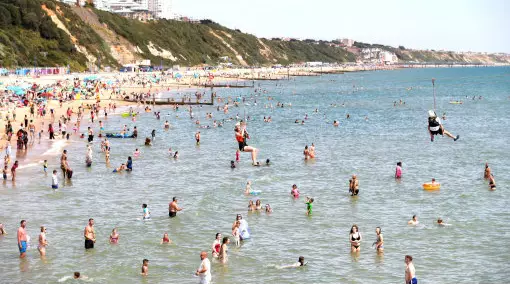
The recent heatwave (that seems to have taken a back seat) could last four years, according to scientists.
It wasn't just us Brits suffering, countries around the world saw mercury soar causing deadly wildfires and even deaths.
And new research suggests that this year's global sweltering temps will continue to make us sweat right through to 2022.
Some sun-worshippers enjoyed temperatures that were, for many days, well over 30C and it was a little too much for the rest of us. But now it's cooling down we're sort of missing it - regardless of how regularly we complained.
Advert
According to The Sun (very fitting), the 2018 heatwave was partly down to global warming, but also due to a northerly shifting of the jet stream, cyclical winds that regulate the Earth's temperature.
But rather than cooling down, the Earth is likelier to get even hotter over the next few years. Time to cancel next summer's holiday then.

According to a study between France's CNRS, the University of Southampton and the Royal Netherlands Meteorological Institute, the coming years will undoubtedly be hotter than expected, as suggested by a new average temperature prediction method developed by the researchers.
Advert
The study suggested that the average temperature of the air is likely to be abnormally high between 2018 and 2022 - and this isn't just down to global warming.
It could be due to a 'low probability of episodes of intense cold'.
The study added that it will lead to higher air and sea-surface temperatures globally, and even risk increasing tropical storm activity.

Speaking to The Sun, Florian Sévellec, CNRS Researcher, said: "What we really predict is that it is more likely to have anomalously warm years than anomalously cold one."
Advert
According to Sévellec, the 'likelihood for the period 2018 to 2019 is roughly twice as big for a warm anomaly than a cold anomaly'.
The researcher told The Sun that we can expect air temperatures to rise by around 0.02 degrees Celcius by the end of 2018, and by a further 0.03 degrees Celcius into 2019.
Sévellec also explained: "On top of this long-term warning, we suggest that the natural variability puts us in a warm phase that superimposes a warm anomaly, approximately twice as big as the effect of global warming on its own."
Advert
So it looks like the factor 50 will stay out, along with our shorts, sandals and sunnies.
Featured Image Credit: PA